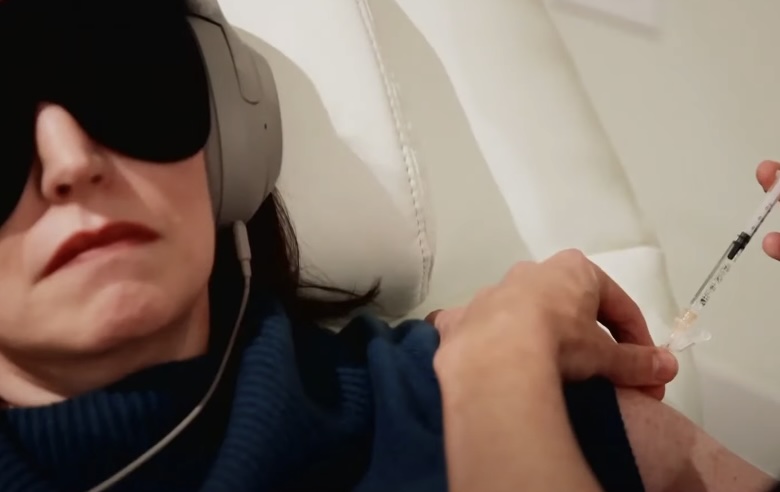Innovative treatment options like Ketamine therapy have been gaining attention for their potential effectiveness in addressing mental health and chronic pain conditions. However, it’s important to consider the cost of this treatment before making a decision. This article explores the crucial aspect of pricing when it comes to ketamine therapy so that individuals can make informed choices about pursuing this option.
Understanding Ketamine Therapy and Its Pricing

Initially designed as an anesthetic, ketamine therapy is now acknowledged for its potential in managing diverse mental health ailments that incorporate depression, anxiety and post-traumatic stress disorder (PTSD). Nevertheless, the price of this therapeutic approach can fluctuate considerably depending on sundry elements. In this far-reaching manual, we will scrutinize the complexities surrounding pricing issues of ketamine therapy while examining crucial determinants and comprehensively explaining them.
Factors Influencing the Cost of Ketamine Therapy
Several factors affect the cost of ketamine therapy, and all play a role in determining its final price. To gain insight into these pricing components, let’s explore them separately:
Type of Treatment
There are various ways to deliver Ketamine therapy, and the cost of treatment depends on the method chosen. The commonly used methods for administration include:
| Treatment Type | Description | Cost Range (Approx.) |
| Intravenous (IV) | Direct infusion into the bloodstream | $350 – $800 per session |
| Intramuscular (IM) | Injection into the muscle | $250 – $600 per session |
| Nasal Spray | Inhalation via nasal spray | $200 – $500 per session |
The price differs depending on the intricacy of the procedure, equipment necessary, and probable adverse effects. Intravenous therapy requires more medical attention and supplies which increases its cost in comparison to other treatments.
Location and Facility
The cost of ketamine therapy is greatly influenced by both the location and type of medical facility. Generally speaking, urban areas with higher costs for living and healthcare tend to have pricier options available.
| Location | Description | Cost Range (Approx.) |
| Major Cities | Urban centers with higher expenses | Higher end of the range |
| Suburban or Rural Areas | Lower cost of living | Lower end of the range |
Moreover, the cost of services may vary based on the prestige and standard of the establishment. Health centers with a particular emphasis on ketamine treatment could impose disparate rates in comparison to regular medical facilities.
Number of Sessions
For optimal results, a full course of ketamine therapy usually comprises multiple sessions. The number of necessary sessions differs based on the severity and responsiveness to treatment for each individual’s condition. Extensive sessions typically lead to higher overall expenses.
| Number of Sessions | Description | Cost Range (Approx.) |
| Initial Assessment | Initial evaluation and assessment | $100 – $300 (one-time fee) |
| Full Treatment | Multiple sessions as per individual needs | Varies based on sessions |
Patients need to anticipate the accumulating cost of several sessions, which may be extended over weeks or months.
Medical Staff Involved
The cost of ketamine therapy may vary depending on the proficiency and qualifications of the medical practitioners administering it. Health care professionals with extensive expertise in this field like psychiatrists or physicians might charge more for their services. It’s crucial to opt for a reliable healthcare provider who holds appropriate credentials to guarantee that treatment is secure and efficient.
Average Cost of Ketamine Therapy

Understanding the contents of a standard treatment plan is essential when determining the cost of undergoing ketamine therapy.
Initial Consultation
The first meeting acts as the cornerstone of ketamine therapy. A skilled medical practitioner examines the patient’s mental health background, assesses if they are eligible for ketamine treatment, discusses potential gains and outlines possible hazards during this session.
| Cost Range | Maintenance Session Frequency |
| $100 and $300 per session | The precise cost may differ based on the healthcare professional’s expertise, geographical location, and any other evaluations or examinations deemed as necessary |
Treatment Sessions
The foundation of the therapeutic process in ketamine therapy is a sequence of treatment sessions. A medical professional supervises these critical sessions, which may be delivered intravenously (IV), through nasal spray or oral tablets depending on individual requirements and healthcare provider advice.
- Standard Course: The normal ketamine treatment regimen usually includes 6 to 8 therapy sessions spread over several weeks.
- Cost Range: The cost of individual treatment sessions can vary greatly depending on factors like where you are and who your provider is. Typically, a single ketamine session will cost between $300 to $800. This means that the total expense for a full standard course could fall somewhere in the range of $1,800 to $6,400.
Maintenance Sessions
Following the primary ketamine therapy, certain individuals may necessitate upkeep sessions to uphold and extend its remedial advantages. The cadence of these sessions relies on how they respond to treatment and their mental health condition’s character.
| Cost Range | Maintenance Session Frequency |
| $300 to $800 per session | The frequency of maintenance sessions may fluctuate from one session every few weeks to once per several months. |
Factors Influencing Ketamine Therapy Costs
There are multiple factors that impact the overall expense of ketamine treatment. Being aware of these components can enable patients to make informed choices and proficiently budget their costs.
- Geographical Location: The cost of ketamine therapy varies depending on the geographical location, with urban and metropolitan areas typically charging more than smaller rural locations.
- Provider Expertise: Healthcare providers with extensive and distinguished experience may command more significant fees for their services. Although such expertise can instill greater trust in the treatment, it often entails higher costs.
- Additional Services: It is important for patients to keep in mind that there may be supplementary expenses, including preliminary evaluations, post-treatment meetings, or other healthcare-related amenities necessary when undergoing ketamine therapy.
- Insurance Coverage: It is essential to examine insurance coverage when it comes to ketamine therapy. Certain health insurance providers may provide partial compensation for the expenses associated with this treatment option. Eligibility and specific coverage details can be obtained by reaching out to one’s respective medical insurer.
Financing Options for Ketamine Therapy
For some people, handling the expenses that come with ketamine therapy can be difficult. However, there are various financing choices available to alleviate this challenge.
- Health Savings Accounts (HSAs) and Flexible Spending Accounts (FSAs): HSAs and FSAs can be utilized to pay for qualified medical expenses, which includes ketamine therapy. This helps alleviate financial hardships.
- Payment Plans: Flexible payment plans are commonly provided by ketamine therapy providers to make the treatment cost more manageable for patients. These types of arrangements allow individuals to spread out their payments over time.
- Insurance Reimbursement: Partial reimbursement for ketamine therapy expenses may be offered by certain insurance providers, as previously stated. Patients are advised to meticulously assess their insurance policies and engage with their healthcare provider to investigate this possibility.
- Financing Programs: There are financing programs available that some clinics or healthcare facilities collaborate with. These financing companies specialize in medical treatments and provide loans or credit lines customized for covering the expenses related to ketamine therapy.
- Nonprofit Organizations and Grants: Individuals seeking mental health treatments, such as ketamine therapy, can benefit from financial support or grants provided by some nonprofit organizations and foundations. It is recommended to conduct research and seek information about these resources.
Insurance and Ketamine Therapy
A significant factor in how much ketamine therapy is revolves around insurance coverage.
Limited Insurance Coverage
The use of Ketamine therapy for various conditions, including depression, is still considered an experimental treatment. Consequently, insurance coverage for the said therapy remains restricted or exceedingly rare. Several factors contribute to this limited coverage:
- Experimental Status: The fact that Ketamine therapy is still in the experimental phase presents a major obstacle when it comes to obtaining complete insurance coverage. Insurance providers typically prefer treatments with proven effectiveness and well-documented clinical trials, as this helps minimize their exposure to risk.
- Lack of FDA Approval: Despite the fact that ketamine has obtained FDA approval for anesthesia applications, its usage in treating mental health conditions like depression is restricted, leading to a shortage of insurance coverage.
- Varying Policies: Insurance companies possess distinct policies and standards for coverage that result in inconsistent rates of approval. Certain providers may furnish partial coverage, whereas others might refuse to grant any form of insurance protection.
Out-of-Pocket Expenses
Ketamine therapy often incurs significant expenses that patients are expected to bear, in part due to the lack of sufficient insurance coverage. Here’s a detailed outline of these out-of-pocket costs:
| Expense Category | Description | Cost Variation |
| Initial Consultation | Comprehensive assessment and treatment options discussion. | Varies by provider and location |
| Treatment Sessions | Series of treatment sessions over weeks or months. | Varies by provider |
| Medication Costs | Cost of ketamine medication (e.g., IV infusion, nasal spray, lozenge). | Varies by ketamine form |
| Follow-Up Appointments | Monitoring progress and potential treatment plan adjustments. | May come with additional fees |
| Travel and Accommodation | Expenses incurred for long-distance travel to access therapy. | Depends on travel distance |
| Miscellaneous Costs | Laboratory tests, psychological assessments, and other miscellaneous expenses. | Not typically covered by insurance |
Ketamine Therapy Compared to Other Treatments
Comparing the cost of ketamine therapy to traditional treatments can be useful in determining its expense.
Medications
Depression and related disorders are commonly treated with traditional antidepressant medications, which have become a standard treatment option. These drugs tend to be more cost-effective per dosage than ketamine but may necessitate extended usage. Important factors to contemplate include:
- Cost per Dose: When comparing the cost per dose, traditional antidepressants are typically cheaper than individual ketamine therapy sessions.
- Long-Term Commitment: Patients who are prescribed antidepressants may have to consume them on a daily basis for an extended period, which can span several months or even years. Consequently, the total expense of medication might accumulate into a significant amount over time due to this long-term commitment.
- Monitoring: Continuous monitoring of potential side effects and medication dosage adjustments may require frequent visits to healthcare providers, which can contribute to the overall expense.
Psychotherapy
When it comes to addressing mental health issues, there are various treatments available such as psychotherapy which includes talk therapy and cognitive-behavioral therapy (CBT). However, the expenses associated with attending multiple sessions may amount over time. In fact, they can be comparable to those incurred in a complete course of ketamine treatment. It’s worth taking note of this aspect before considering any approach for treating your condition.
- Session Costs: The cost of a psychotherapy session usually depends on the therapist’s qualifications, location and type of therapy applied. Although one-on-one sessions may be cheaper when compared to undergoing single ketamine treatment, if multiple sessions are undergone they could amount to a significant cost.
- Duration: The overall financial commitment of psychotherapy treatment can increase as the duration extends to cover several months or even years.
- Insurance Coverage: The degree of insurance coverage for psychotherapy is inconsistent, which may require some people to pay for each session themselves. This can add to the overall expense.
Conclusion
Understanding how much ketamine therapy is involves considering various factors, including the type of treatment, location, and individual medical needs. While the cost can be significant, especially with the lack of insurance coverage, the potential benefits for those struggling with certain mental health conditions or chronic pain might justify the expense. As the medical community continues to explore and recognize the efficacy of ketamine therapy, its accessibility and affordability are likely to evolve.
For those considering ketamine therapy, it’s essential to weigh the costs against the potential benefits and explore all financial options, including payment plans offered by some clinics. Remember, the value of mental health and wellbeing is immeasurable, and finding effective treatment is a crucial step in the journey towards healing and recovery.
FAQ
Q: How much is ketamine therapy on average?
A: The average cost of a full course of ketamine therapy can range between $2,400 – $4,800, depending on the type of treatment and number of sessions.
Q: Can insurance cover ketamine therapy?
A: Currently, most insurance plans do not cover ketamine therapy, as it’s often considered experimental.
Q: Are there any additional costs associated with ketamine therapy?
A: Yes, costs like initial consultations, travel expenses to the clinic, and possible follow-up sessions should be considered.
Q: How does the cost of ketamine therapy compare to traditional depression treatments?
A: While ketamine therapy might seem more expensive upfront, it may offer faster relief, potentially reducing long-term costs associated with chronic treatment.









+ There are no comments
Add yours